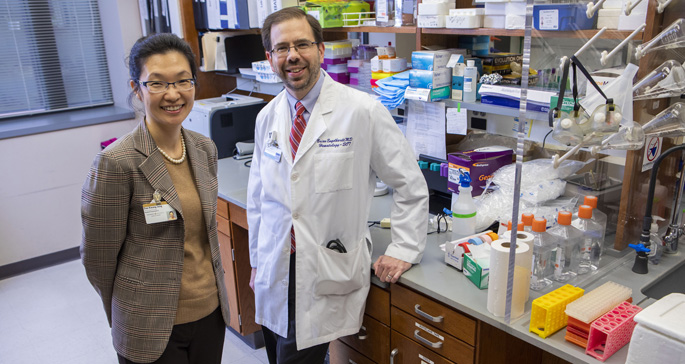
January 17, 2019
Research explores link between stem cell transplant, diabetes
About a decade ago, at the beginning of his career in academic medicine, Brian Engelhardt, MD, MSCI, noticed that many of his patients receiving a stem cell transplant for their blood cancer ended up with diabetes.
By VUMC News and Communications

